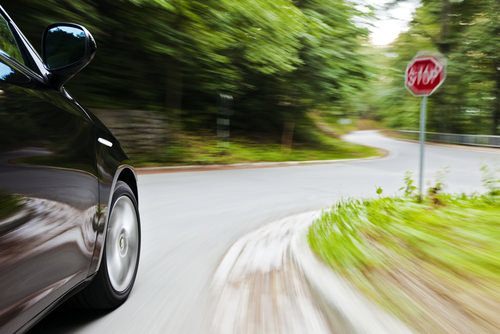
The Colorado crime of reckless driving (42-4-1401 C.R.S.) is typically more dangerous than the Colorado crime of careless driving (42-4-1402). But they are both Colorado class 2 traffic misdemeanors that carry identical criminal penalties for a first-time offense:
- a fine of $150 to $300, and/or
- 10 days to 90 days in county jail
People can be convicted of being a reckless or careless driver for mishandling not only automobiles but also:
- bicycles,
- electrical assisted bicycles, or
- low-power scooters
Reckless driving in Colorado (42-4-1401 C.R.S.)
A reckless driver is a person who drives with wanton or a willful disregard for the safety of other people or property. An example would be a person speeding much higher than the limit, especially if people are around.
As discussed below, reckless driving is considered a more serious crime than careless driving.
Penalties
As a class 2 traffic misdemeanor, a first-time conviction of reckless driving in Colorado carries:
- a fine of $150 to $300, and/or
- 10 days to 90 days in county jail
For a second or subsequent conviction, the sentence is:
- a fine of $50 to $1,000, and/or
- 10 days to 6 months in county jail
In addition to a fine and/or jail time, the judge may impose the following additional punishments:
- payment of restitution to the alleged victim (if there is one), and/or
- community service
Driver’s license consequences
People convicted of operating an automobile recklessly will also have eight (8) DMV points added to their driver’s license. (Demerit points are not added to people’s licenses for driving a bike or electrical assisted bike.)
As discussed below, being a reckless driver carries twice as many DMV points as being a careless driver does.
Defenses
Potential defense strategies to allegations of operating a vehicle recklessly include the following arguments:
- the “no driving” defense, where the defendant argues he/she was not the one operating the car;
- the police were mistaken about the defendant operating the vehicle unsafely; or
- the driver had a justifiable reason for being reckless (such as escaping from a fire)
Another defense is that the defendant was in fact acting carelessly, not recklessly. This defense could persuade the prosecutor to reduce the charge from reckless driving down to careless driving, which carries less of a stigma.

Careless driving carries half as many Colorado DMV points as reckless driving does.
Careless driving in Colorado (42-4-1401 C.R.S.)
A careless driver is when a person drives in a careless and imprudent manner without due regard for the width, grade, curves, corners, traffic, and use of the streets and highways and all other attendant circumstances. An example would be accidentally hitting the median while making a hurried U-turn.
As discussed above, being a careless driver is a less serious charge than being a reckless driver. Careless driving comprises absent-minded mistakes whereas reckless driving constitutes severe lapses in judgment.
Penalties
As a class 2 traffic misdemeanor, the punishment for careless driving is typically the same as a first-time offense of reckless driving:
- a fine of $150 to $300, and/or
- 10 days to 90 days in county jail
However, careless driving becomes a class 1 traffic misdemeanor if the careless driving is the proximate cause of injury or death to another person. The sentence is:
- a fine of $300 to $1,000 and/or
- 10 days to one (1) year in county jail
In addition to a fine and/or jail time, the judge may impose the following additional punishments:
- payment of restitution to the alleged victim (if there is one), and/or
- community service
See our related article, Is careless driving a misdemeanor in Colorado?
Driver’s license consequences
People convicted of driving an automobile carelessly will also have four (4) DMV points added to their driver’s license. (Demerit points are not added to people’s licenses for driving a bike or electrical assisted bike.)
As discussed above, careless driving carries half as many DMV points as reckless driving does.
Defenses
Many of the same defenses that apply to reckless driving could be used to fight careless driving charges as well, including:
- the “no driving” defense, where the defendant argues he/she was not the one driving the car;
- the police were mistaken about the defendant driving unsafely; or
- the driver had a justifiable reason for driving carelessly (such as avoiding a swerving driver or falling tree)
If the prosecutor is alleging that the defendant’s careless driving caused someone else’s injury or death, the defendant would then argue that other “intervening factors” contributed to the injury or death. Examples would be that the victim was driving carelessly him/herself.

